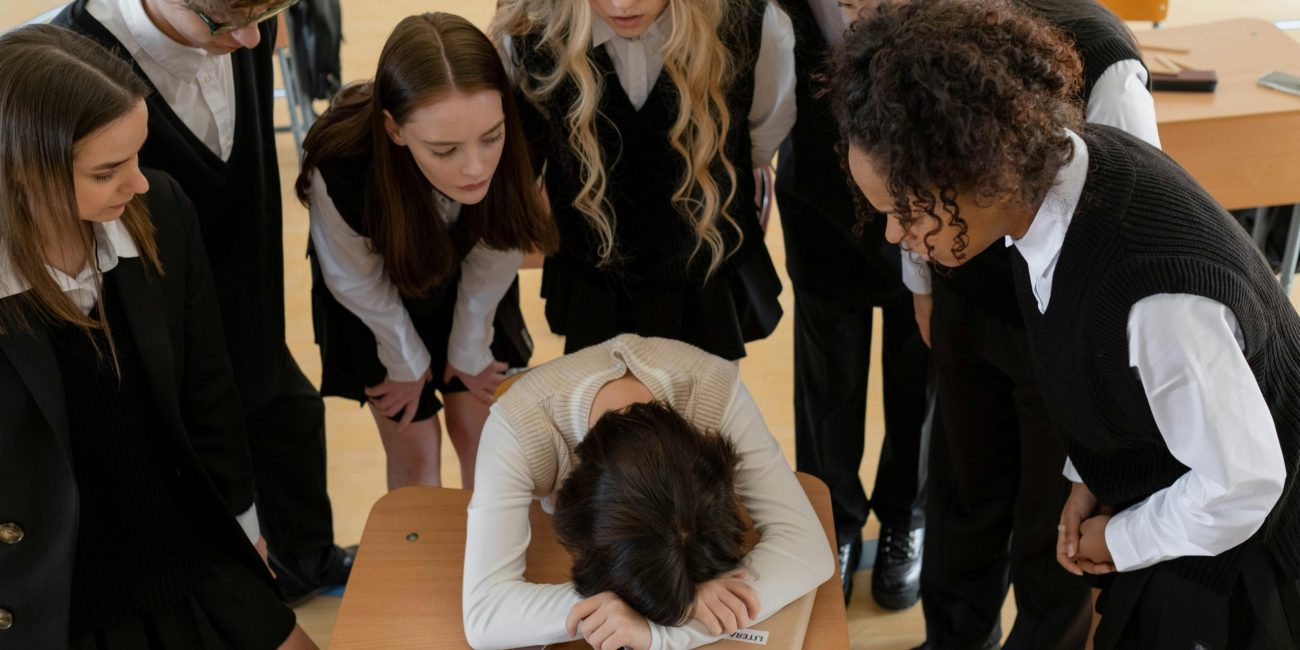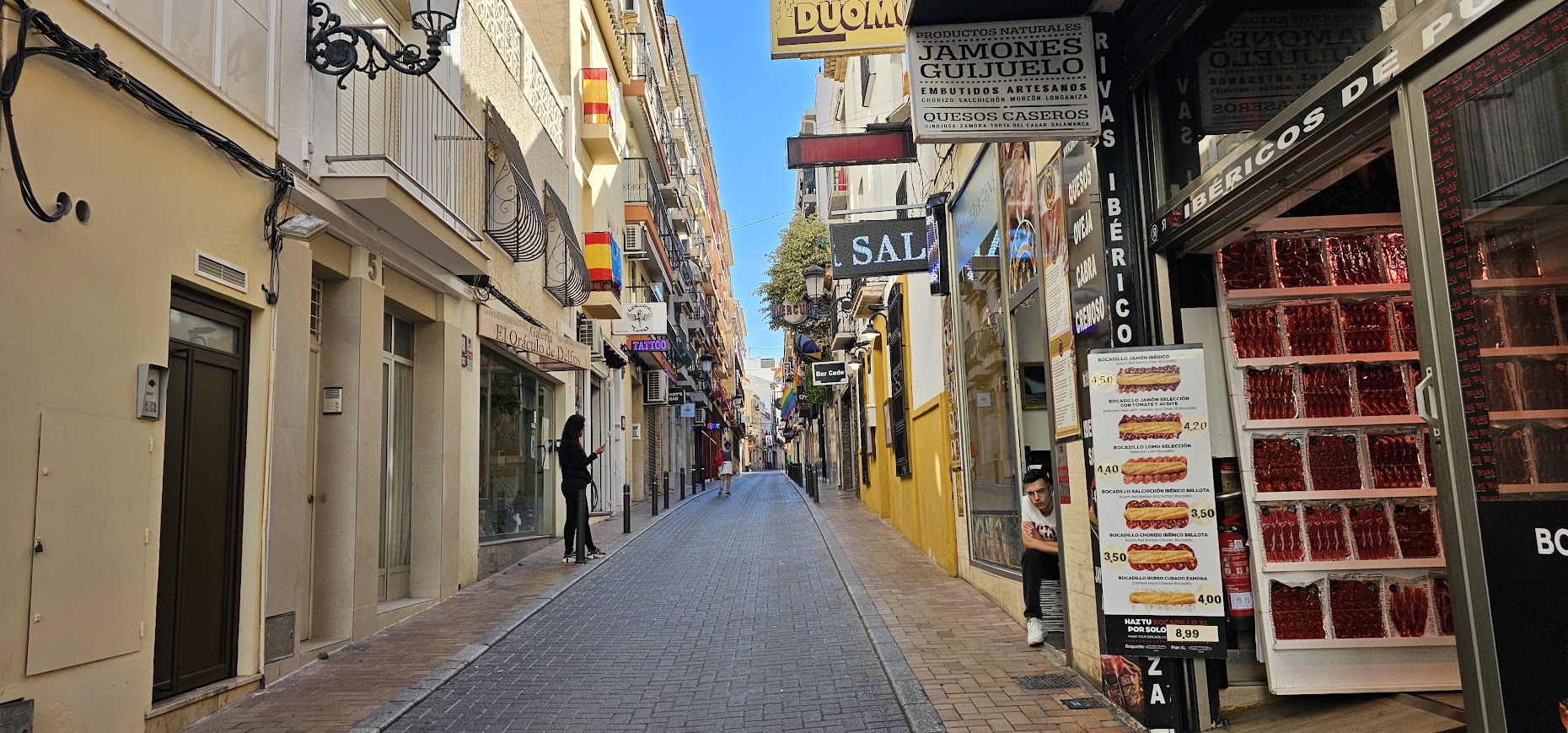The Ministry of Education was ordered by the High Court of Justice of the Valencian Community (TSJCV) to compensate the family of a youngster who acknowledged being bullied at the Catral Secondary School from 2020 to 2021 with €20,000.
According to the resolution, when the family of the student, who was 14 at the time, reported the school violence, the school denied that it was happening and even deemed the victim’s absences from class to be unwarranted, indicating that the management team of the school failed to implement procedures to address the incident.
Additionally, he used the COVID pandemic as an excuse for suspending the three students who had confessed to bullying when he eventually activated them to impose sanctions.
Only when psychological studies verified the effect the incidents had on the victim’s mental health did the educational authorities cease their inaction.
Threats, shoving, and insults through WhatsApp
According to the Administrative Litigation Chamber’s Section 4 order, the child has been the victim of “constant” bullying by three Catral Secondary School classmates since the start of the 2019–2020 academic year. They frequently spat slurs at the youngster, including “Chinese, Asian, fat, pig…” and instances where they assaulted her, stole her school supplies and concealed them, or chalk-stained her clothes. They once dumped her rucksack, which contained all of her books, into a puddle of water. She was frequently abused on social media and threatened via WhatsApp after school.
A pattern of harassment
When the student’s family, led by lawyer Pablo Pérez Sola, discovered their daughter was being tormented in December 2019, just before the Christmas holidays, they reported the incident right away to the school, which promised to talk to the perpetrators.
Because they “did not observe a pattern of bullying behaviour towards the student,” the school’s management team insisted that no protocol be created for this circumstance, keeping the bullies in the victim’s classroom for the rest of that school year. According to the instructors, “no cases of bullying were observed when the parties were questioned, and due to the fact that once mediation was conducted, the situation ceased to exist—in their assessment.”
Students who were impacted were warned that “any sign, however small, of animosity would be severely punished and would involve the opening of a case to prevent situations of school violence and the corresponding sanctions.” The school’s administration and teaching staff also promised that “an intensive observation process was carried out by the guidance department.”
Report
The Ministry of Health’s Child and Adolescent Mental Health Unit (USMIA) confirmed in a report that the affected individual had “anxiety-type symptoms secondary to bullying from the previous year” in October 2020, when the school year had begun with restrictions because of the pandemic. In response, the IES committed to creating a program for the minor’s gradual reintegration into the centre, where it had already acknowledged the bullying that it had denied.
The reintegration program was used to justify the student’s absences, as they had not been consistently attended since the start of the school year. But “after a period of time,” the IES concluded that they were unjustified, citing the Education Inspectorate’s and Social Services’ directives as justification.
In-home educational support
The minor’s parents sent the school with additional paperwork in September 2021, including a second USMIA assessment that suggested the student get home-based educational treatment. The procedure for requesting this kind of help started, and the Generalitat (Catalan Government) finally approved the request.
The court’s decision to support the appellant family is actually based on this ruling: the centre thought that the protocols weren’t necessary to start, but nearly two academic years later, it activated this home care measure, thus it feels that the earlier protocols were required.
Psychiatric report
A 2022 psychiatric report that is part of the case file states that the youngster has mental diseases that are consistent with the diagnoses of “post-traumatic stress disorder” and “conversion disorder,” which have “a direct and causal relationship between the expert diagnoses and the bullying.”
According to the same report, “it would be highly advisable to proceed with intensive psychiatric and psychological treatment, for a period of time that, at this time, we cannot specify.” These psychological injuries are described as having “an irregular and persistent evolution that has barely improved with the prescribed treatments” and “producing a notable alteration in his capacity to lead an independent life.”
Appreciation
The Ministry of Education claims that because the lockdown brought on by the COVID outbreak began, the disciplinary actions and reprimands against the participants were halted, “so they were never filed.” Given that the family’s appeal had been submitted to the Legal Advisory Council prior to the proceedings reaching the TSJCV (High Court of Justice), the Ministry of Education itself accepted this.
This process included the Generalitat taking responsibility for 5,000 euros in 2023 for not pursuing disciplinary action against juveniles who “had admitted responsibility for certain acts.”
Abandonment
The decision is “a public denunciation” of the negligence that “the administration often displays in these cases” when bullying takes place in educational institutions, according to attorney Pablo Pérez of the Pardo y Pérez Abogados company. In the absence of a response from the administration, which dismissed the case due to the statute of limitations, the family filed a criminal complaint with the Juvenile Prosecutor’s Office, seeking €56,000 in compensation in its appeal.








No Comment! Be the first one.